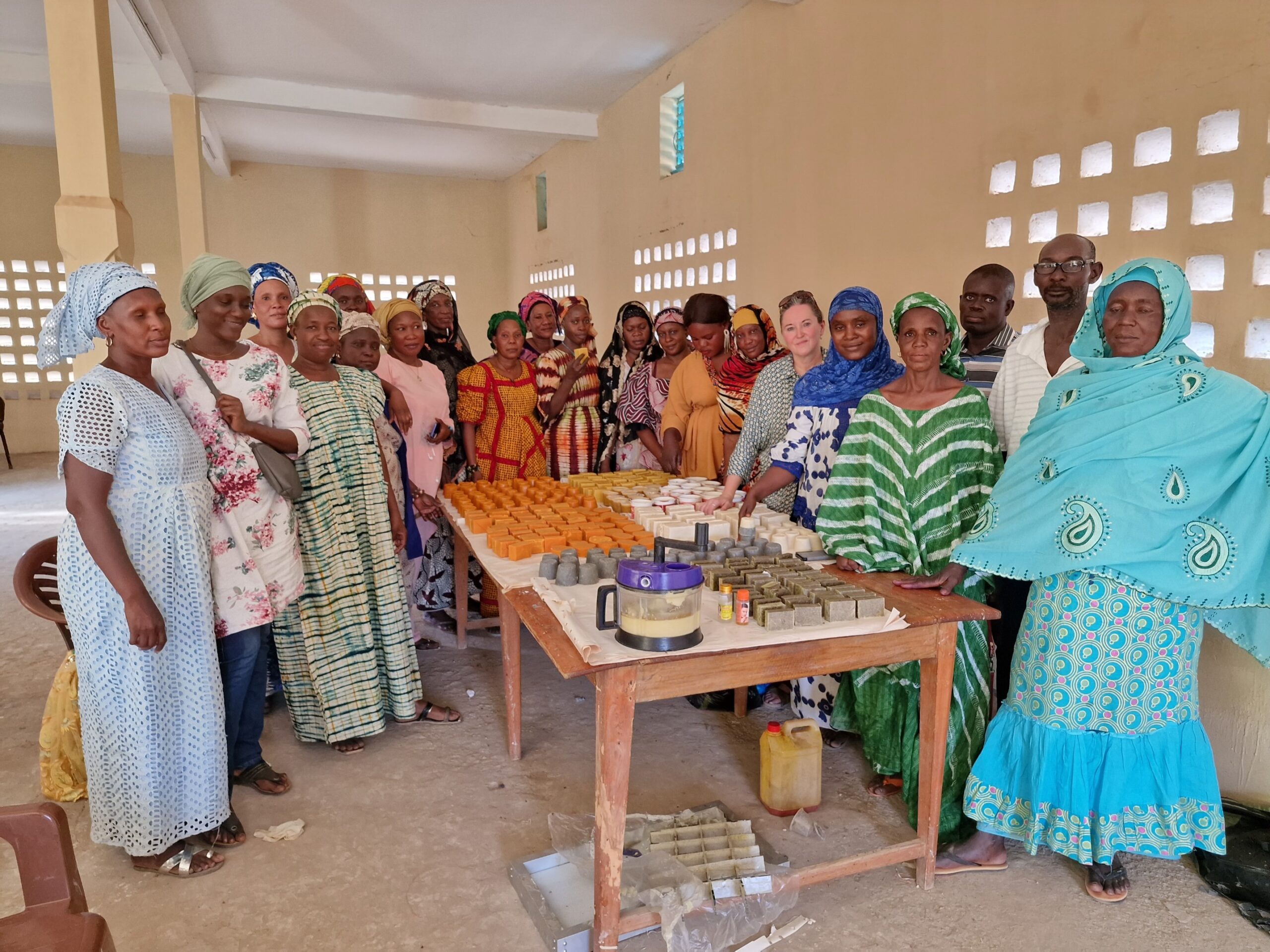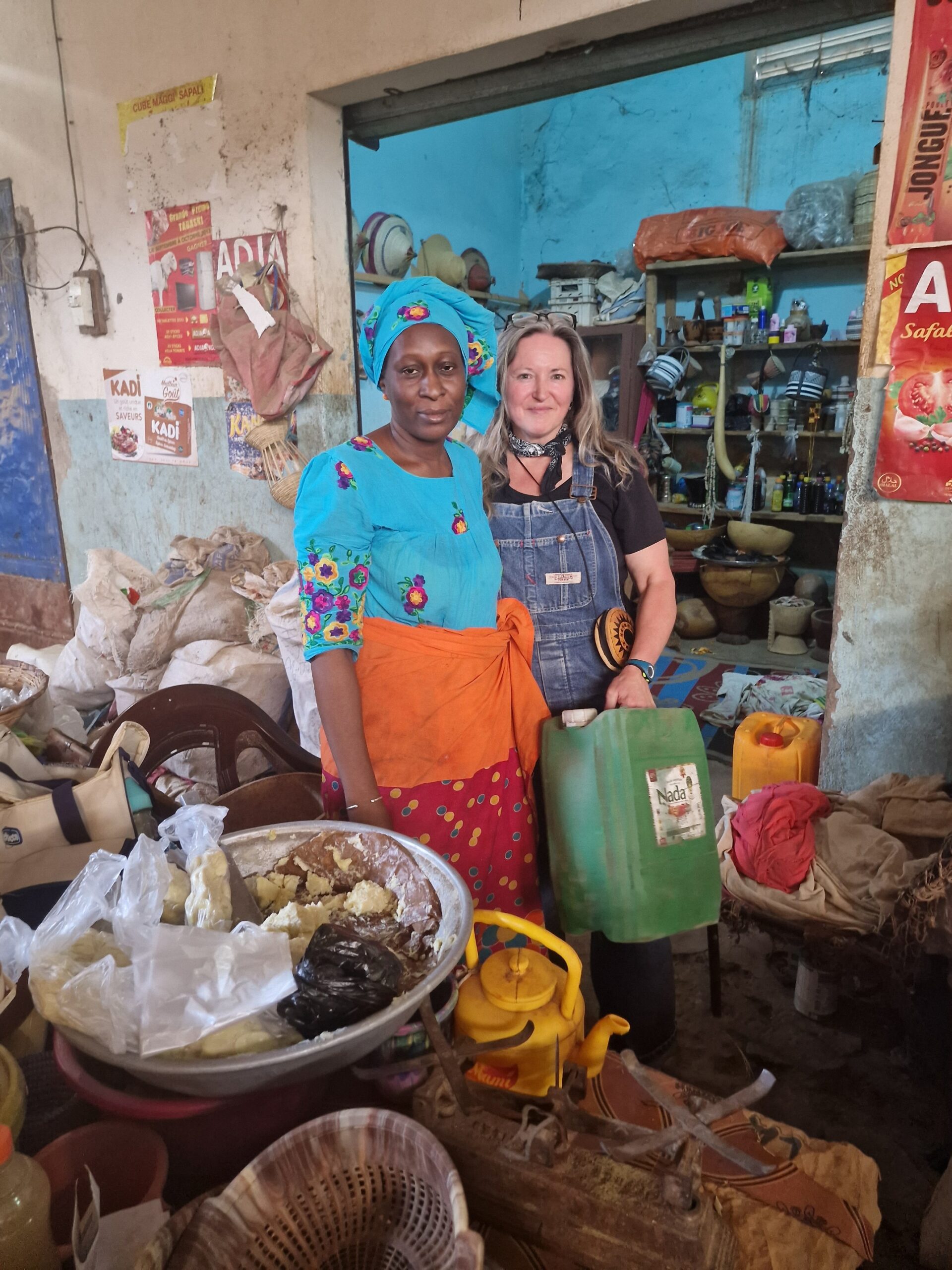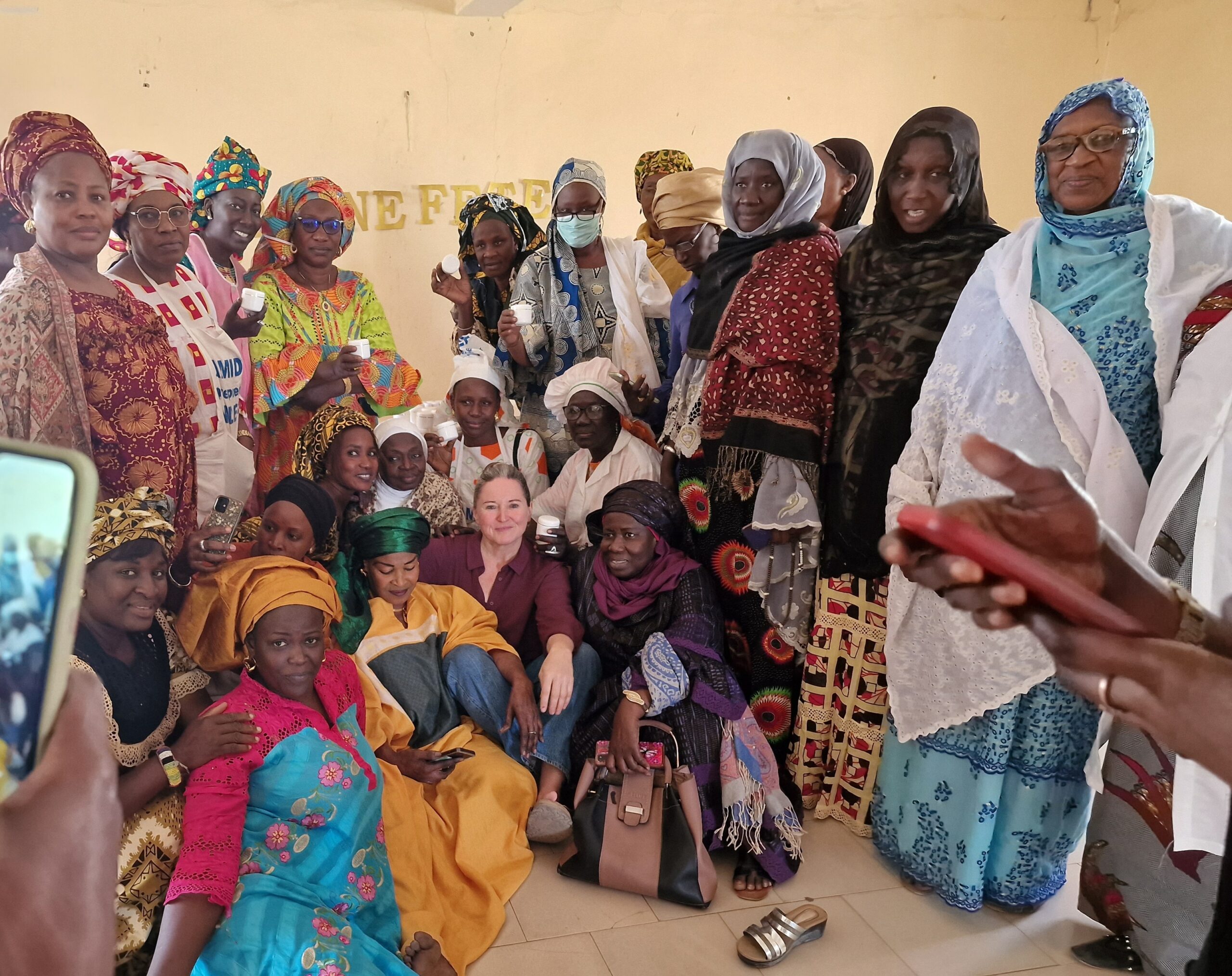
Volunteer Post
Empowered Women Empower Women – Sharing the Wisdom I’ve Gained from Fourteen Volunteer Assignments
Monica Norley
When asked to write a piece for Women’s History Month, it caused me to quickly reflect over 28 years of working in women’s economic empowerment and perhaps some advances for women I have experienced while working in other countries and cultures. I have just returned from Senegal, where I have spent the last month completing two assignments for the Farmer-to-Farmer Program, working with three cooperatives, teaching them natural soap manufacturing, and assisting one cooperative, in particular, to add three additional body care products (lip balm, hair & scalp oil and body balm) to an existing soap range that I have helped them to develop over the years. With around 14 volunteer assignments done for Winrock and Farmer-to-Farmer since 2011 (six alone in the country of Senegal), my journey started many years ago as a business college graduate who joined the Peace Corps and served in Guatemala (1995-97), where I was blessed with the rich experience of living in the beautiful indigenous Mayan village of San Miguel Chicaj in the Department of Baja Verapaz. Working primarily with female textile artisans helping them to obtain income-generating loans and access to fair trade markets, providing them with technical assistance and oversight, as well as teaching local youth in the schools’ entrepreneurship, the experience was life-changing for me, and I have been passionately doing this kind of work ever since.

My work takes me primarily to the African continent, where I teach mostly farmers in all aspects of business management and cooperative development. However, having also owned and operated a fair trade natural bath and body care company for 10 years, soapmaking is the perfect income-generating activity where people can incorporate many agricultural inputs as well as support a circular economy. It is still an extremely viable business model in many parts of the world, particularly for women, with locally available, economical, and abundant raw materials. It provides a relatively quick access-to-market for entrepreneurs as they don’t necessarily need to invest in expensive equipment and machinery nor do they need to have access to electricity in order to get started. Beautiful, natural ingredients such as shea butter, red palm, palm kernel, peanut, castor, beeswax, honey, and coconut oil are just a few that are perfect for soapmaking. Fortunately, increased awareness and appreciation for the natural product market across Africa provide groups with lots of business opportunities for the foreseeable future. Then when you add in plants such as peppermint leaf, turmeric, ground cinnamon, hibiscus flower, dried orange peel, tamarind, black pepper, moringa, neem, eucalyptus leaf, coffee (to name a brief few) that can serve as wonderful natural colorants and exfoliants, there exists a vast potential for supporting local farmers, who also most often end up being other women. It can also mean being the stimulus needed to give farmers the courage to diversify away from pesticide-laden crops (i.e., tobacco) that big corporations control the global prices of and keep people in poverty. Soapmaking is an ideal, low-impact business activity producing a staple product that fights germs and disease, aids with sanitation and hygiene, can be used for laundry, bathing, and household cleaning purposes, and is a great skill that can lift people and communities. Just on the African continent alone, my work has so far taken me to Liberia, Ghana, Uganda (check out www.mamamzungu.co), a social enterprise I have founded creating jobs for marginalized women affected by Albinism), Senegal, Nigeria, South Africa, Tanzania, and Malawi. I also did remote assignments in Benin, Ghana, and Senegal during the coronavirus pandemic and am currently working on an exciting circular economy project combining women’s economic empowerment and primate habitat (www.bonobo.org) in the DRC as well as being a consultant to onboard projects protecting forests and wildlife for a carbon credit start-up called One Tribe Global (www.ontribeglobal.com).

Sometimes when I go on these assignments, I stare out the car window as I am driven through city streets or rural communities, and it is not always so evident to me that change is actually happening for the better. I will honestly admit to feeling and thinking that at times. But I have distinctly noticed in the classroom over the years a definite shift in women speaking up and not being as shy at using their voices. Their growth in confidence is abundantly apparent and happening in increasing numbers. More and more women are stepping out into society and grabbing entrepreneurial opportunities by the reins and taking charge, bartering, and purchasing and selling their goods as opposed to the men always doing it. And yes, more and more men in these societies are supporting these women’s education, business pursuits, dreams, and opportunities to generate an income for their households, which I see as progress. After all, there is no sense in any society holding back 50% of their population’s economic and development potential simply based on gender! I remember years ago walking into meetings with groups of women, and the silence was absolutely deafening. It was like pulling teeth to get women to speak up, not be so meek or scared, even to ask a question or share an opinion. In mixed groups especially, they would most often sit quietly while the men took charge. This has persisted for many years during my time working in women’s economic empowerment. But this isn’t necessarily the case anymore, especially with the younger generations of women I now find in some of my workshops. They speak up, defend their positions on topics, come forward excitedly when I ask for volunteers, and offer their knowledge, and there are many more women as leaders of these cooperatives than I have ever experienced before. They are utilizing mobile technologies and social media and often have their phones at the ready to research and probe further. So I see a definite shift.

A favorite phrase I often refer to is ‘Empowered Women Empower Women’; the perfect example is the women of AMIDEF in Senegal. I have worked with them since 2017 and have done a total of four assignments with them (three in person and one remote during COVID-19). So I was thrilled at the prospect of being invited back to work with them now in 2023 and to help them expand their product range. What impressed me most about these women is that since 2017, they have expanded their soap manufacturing in seven regions outside of Dakar (where they are based). They have taken the knowledge I shared with them years ago and have shown their commitment to empowering other women by teaching hundreds of others this skill. With a burgeoning overall membership of 29,000 members countrywide (participating in various income-generating activities – cereals, grains and flour, food preservation, etc.), they assembled 45 regional leaders for our time together on this last trip. What an exuberant, motivated, excitable, and dedicated group of women they remain to be! After our week together developing new products for them, I traveled across the country to a place called Bakel, where I trained another 20 women in soapmaking, and then to Kaolack, where there was another group of approximately 25. What became evident to me is that there is a strong business case for these two groups of women to join forces with AMIDEF, unify themselves in this industry, and position themselves commercially to not only establish a recognizable brand presence in Senegal and across West Africa but also to realize the real potential of exporting in time. They have specifically asked me to return to Senegal in perhaps a month or two to help them with this unifying process, and I very much look forward to that! This women’s cooperative’s history and development is just one brilliant case study and a shining example of the merits of the Farmer-to-Farmer program and Winrock’s targeted efforts over the past ten years, particularly when it comes to empowering and skilling women.
